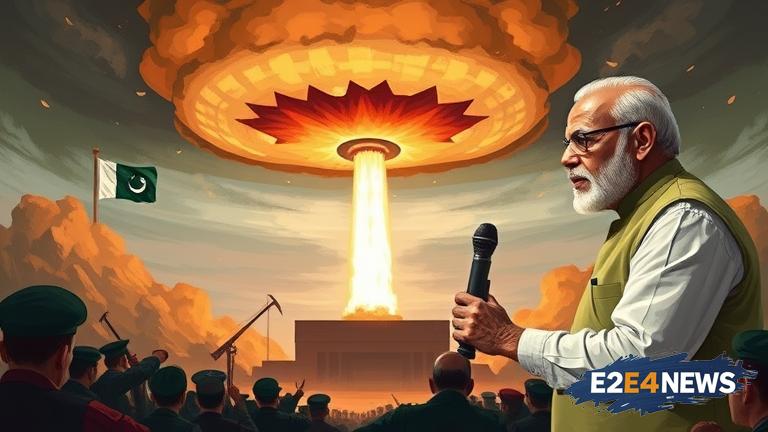The ongoing conflict between India and Pakistan has sparked concerns about the potential for nuclear escalation. However, in a recent statement, Pakistan’s Prime Minister Shehbaz Sharif has ruled out the possibility of using nuclear weapons as a means of aggression. Sharif emphasized that Pakistan’s nuclear capabilities are solely for defensive purposes, aiming to deter any potential threats from neighboring countries. The statement comes as a relief to the international community, which has been closely monitoring the situation between the two nuclear-armed nations. The conflict between India and Pakistan has been ongoing for decades, with both countries claiming sovereignty over the disputed region of Kashmir. The tensions have led to numerous skirmishes and military standoffs, raising concerns about the potential for a larger-scale conflict. Despite the tensions, both countries have been engaging in diplomatic efforts to resolve the issue peacefully. The international community has been urging both nations to exercise restraint and avoid any actions that could escalate the situation. The United States, in particular, has been playing a key role in mediating the conflict, with officials from the country meeting with leaders from both India and Pakistan to discuss possible solutions. The European Union has also been involved in efforts to resolve the conflict, with representatives from the EU meeting with officials from both countries to encourage dialogue and cooperation. Meanwhile, the United Nations has been calling for calm and restraint, urging both countries to avoid any actions that could lead to further escalation. The situation remains volatile, with both countries maintaining a strong military presence along the Line of Control, the de facto border between India and Pakistan. However, with Pakistan’s statement ruling out nuclear escalation, there is hope that the situation may be de-escalating. The international community will continue to monitor the situation closely, urging both countries to engage in peaceful dialogue and avoid any actions that could lead to further conflict. In the meantime, the people of Kashmir continue to suffer, with many caught in the middle of the conflict and facing significant humanitarian challenges. The need for a peaceful resolution to the conflict is urgent, and the international community must continue to play a role in encouraging dialogue and cooperation between India and Pakistan. As the situation continues to unfold, it is essential that both countries prioritize diplomacy and avoid any actions that could lead to further escalation. The world is watching, and the consequences of a larger-scale conflict would be devastating. It is crucial that India and Pakistan work together to find a peaceful solution, one that prioritizes the needs and rights of the people of Kashmir. The international community must continue to support efforts to resolve the conflict peacefully, and Pakistan’s statement ruling out nuclear escalation is a positive step in this direction.
